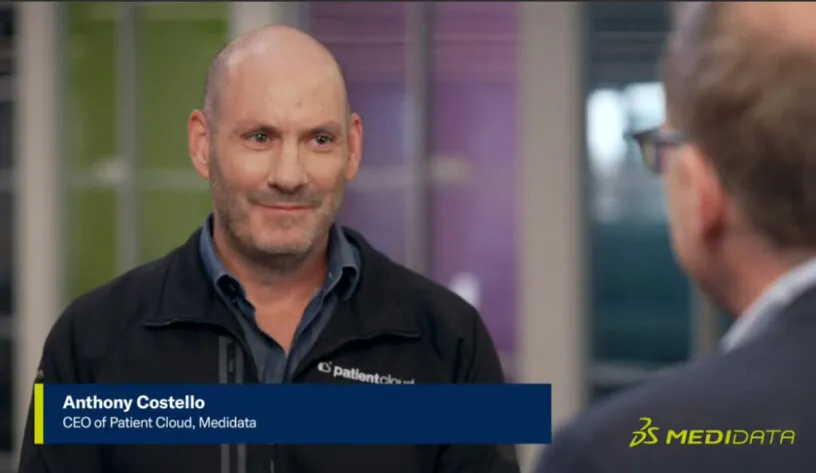Quick Take: Medidata & Harvard Business Review Talk Decentralized Clinical Trials

Decentralized clinical trials (DCTs) have revolutionized clinical research. As trials become more complex, precise, and personalized, embracing this new landscape of patient-focused solutions is critical to ensure success and scalability.
What has been the impact of DCT platforms, and what should companies consider when evaluating the model for decentralized trials? Medidata Patient Cloud CEO, Anthony Costello, sat down with Harvard Business Review for their Video Quick Take series to discuss the value of decentralized clinical trials. Read on for key highlights.
The Impact of Decentralized Trials On Patients, Sites, & Sponsors
Traditional clinical trials have relied heavily on research sites acting as central locations, leading to long travel times to attend visits. This can be a barrier for patients looking to participate in life-saving trials. The decentralized trial model uses patient-facing technology to move trial activities outside central research sites and into patients’ daily lives. This shift lessens the burden of trial participation for both patients and sites, enhancing the overall clinical trial experience.
The Medidata Platform is a unified solution that gives patients remote access to all of their clinical trial needs through one web-based portal. This unified ecosystem of tools also lets sponsors monitor any clinical trial while unifying all data on one platform to improve the speed and quality of data captured through studies.
“It's a critical moment for the way research gets done, the pace of research, the ease of research for patients, and the quality and quantity of data that we're capturing—all things that are much easier to get or to achieve in a decentralized model.”
– Anthony Costello, CEO, Medidata Patient Cloud
Key Considerations When Choosing Decentralized Clinical Trials
DCT technology presents opportunities to accelerate research across different types of disease indications. Patients have more technology in their hands than ever before, and they’re comfortable using it. Sponsors can leverage these innovations not only to relieve patient burden, but also to get experimental therapies to the right patients who accurately represent the diverse range of people who will receive these treatments in a real-world, commercial setting.
Although not every clinical trial can be fully decentralized, solutions are available to strike the right balance of DCT offerings and site-based offerings. Medidata’s Trial Dial™ lets you fine-tune your level of decentralization to best suit your particular clinical trial—all on a single data platform.
The DCT Patient Journey
Patients who participate in decentralized or hybrid trials are more likely to finish their enrollment activities and complete the study due to the increased flexibility provided by DCT technology. The typical pathway for DCT patients spans enrollment, randomization, delivery of investigational medicinal products, and data capture through electronic outcome assessment (eCOA) forms and wearable technology. These patients often have no other healthcare option for their conditions and turn to clinical trials out of necessity. Decentralized trials empower these patients to participate with more ease, saving time on their trial activities and offering secure experiences.
While it may seem like a challenge for sponsors to decentralize a clinical trial program, doing so improves the patient journey and enhances the speed and accuracy of clinical research to get better drugs to market faster.
Watch the full interview with Anthony Costello and Harvard Business Review.
Explore Related Articles
Contact Us


